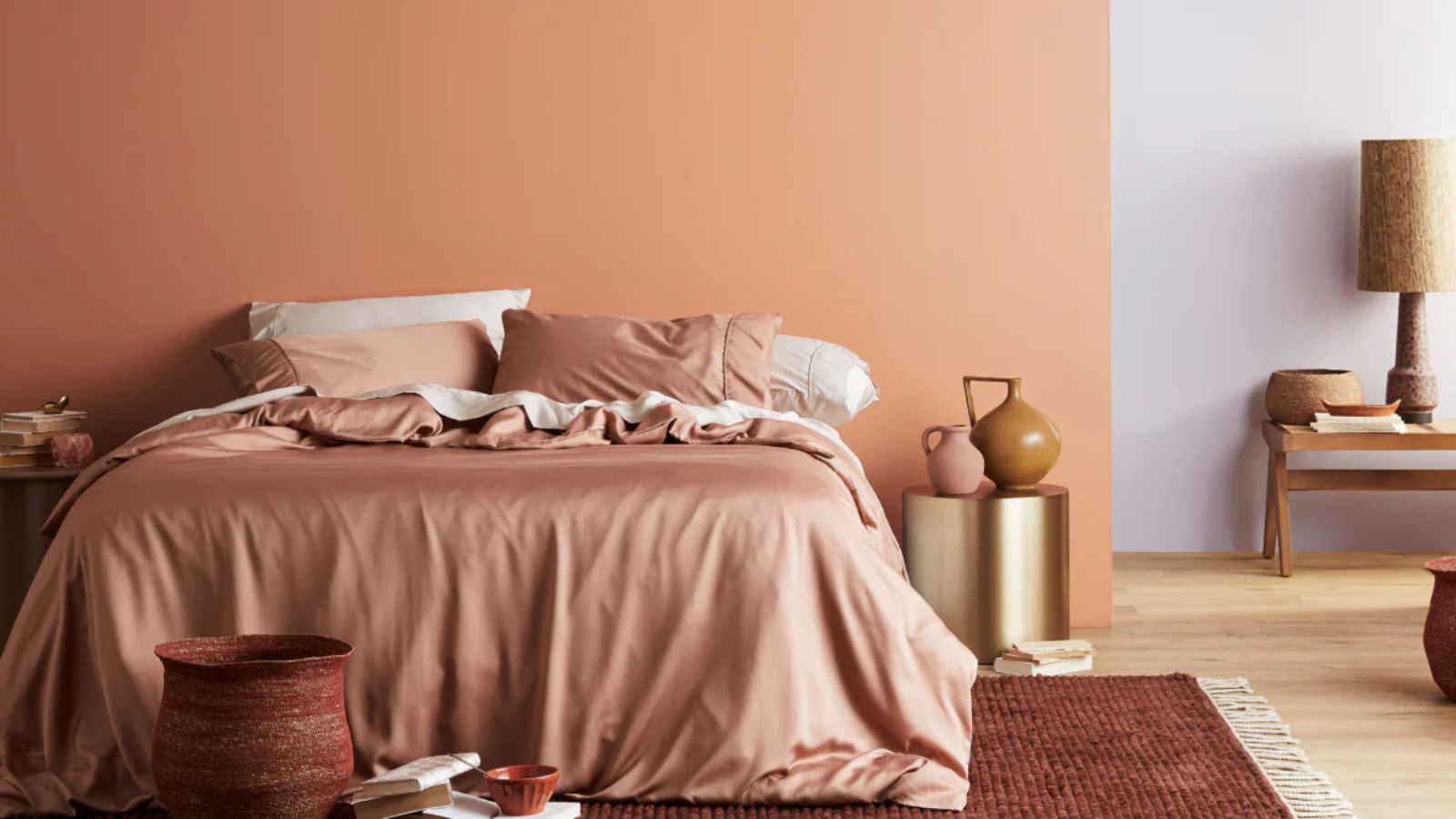
As H&G's resident Sleep Editor, I'm often asked whether bamboo or Tencel makes a better material for bed sheets. I give a different answer each time, depending on who's asking.
Both bamboo and Tencel make great thermoregulators for hot sleepers and summer nights. As bed sheet types go, bamboo and Tencel are more sustainable, so they rank among the top choices for eco-conscious shoppers.
To the untrained eye, bamboo and Tencel look and feel much the same. Together with my team of expert testers, I've learned to spot the differences as we search for the world's best bed sheets. Turns out, the difference between bamboo and Tencel lies in the manufacturing process, and one material might be an eco-friendlier option than the other.
Bamboo vs Tencel − what's the difference and which is best for you?
I asked an expert panel of bedding designers to help me weigh up the pros and cons of bamboo vs Tencel. While Tencel makes a better thermoregulator for hot sleepers, bamboo lyocell is better for the environment.
Bamboo vs Tencel – what's the difference?
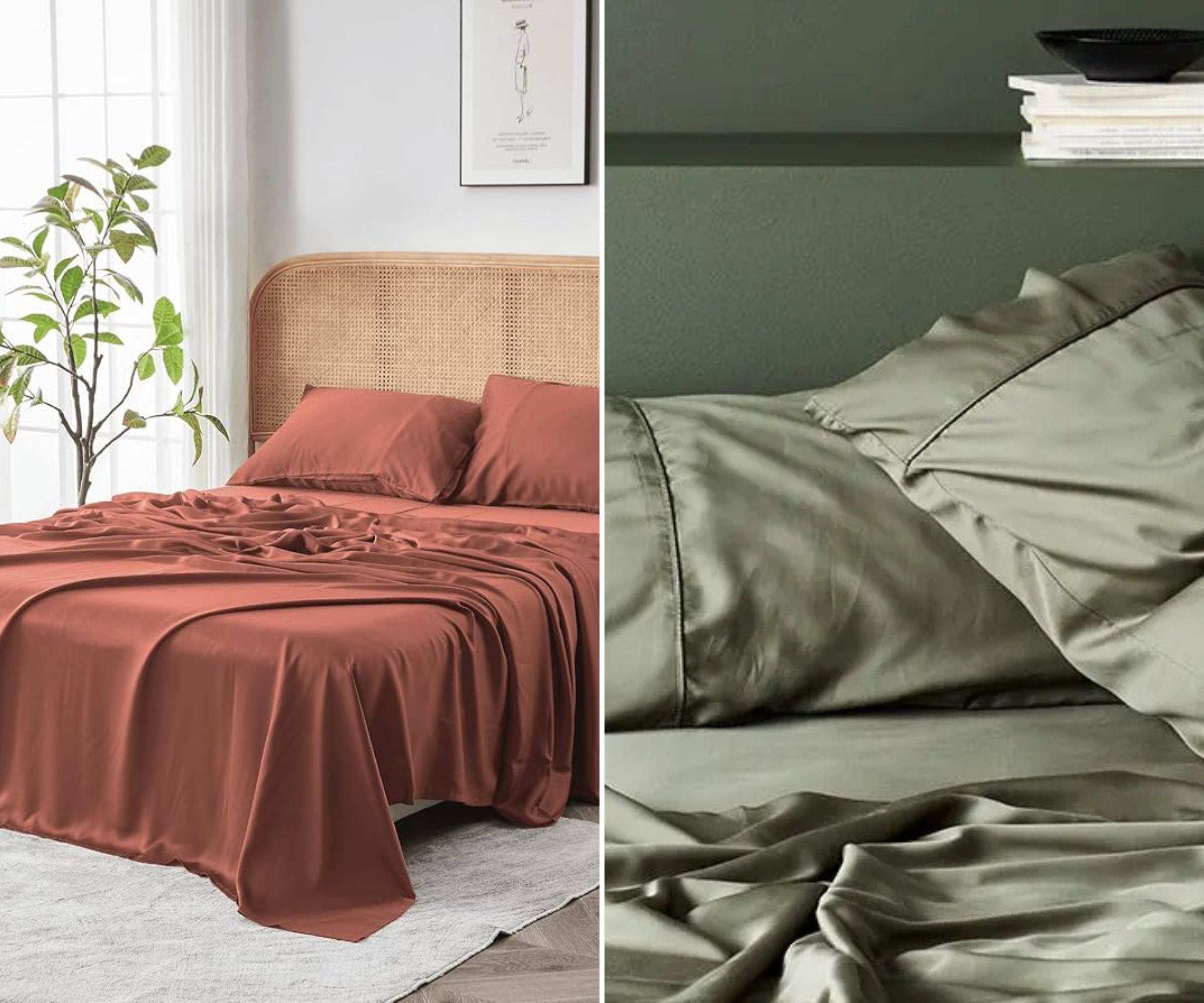
As Anni Stromfeld, co-founder of sustainable bedding brand SIJO, explains, 'Bamboo and Tencel are extremely similar because both originate from wood pulp. Both fibers lead to bedding with a cooling feeling, breathability, and hypoallergenic properties. Things differ, though, in the creation process of each fiber.'
'Tencel is lyocell, which is made in a closed-loop process and has raw materials that are certified to be sustainable,' Anni continues. 'Lyocell is made from high-cellulose wood pulp. It's similar to viscose fibers like rayon, but it's made without carbon disulfide, which can be toxic. Tencel and lyocell are the same thing, in the same way that 'coke' and 'Coca Cola' are the same. Tencel is just the brand name.'
In the bedding industry, bamboo is a catch-all term that encompasses a few different fabrics. In the words of Amanda Turner, VP of Product & Innovation at ettitude, 'Not all bamboo textiles are created equal. Bamboo fabrics can be rayon, modal, or lyocell (like Tencel), meaning some bamboo bedding could contain harmful toxins.'
Many brands don't disclose the type of bamboo fiber they use in their bed sheets, so it's important to shop with one that does. That's why ettitude is one of the best places to buy bedding for eco-conscious shoppers. 'ettitude uses 100% organically grown bamboo lyocell, which is non-toxic,' says Amanda. 'ettitude spent years of refining and testing its signature lyocell fabric to create CleanBamboo that is 100% pesticide free and made in a closed-loop manufacturing process.'
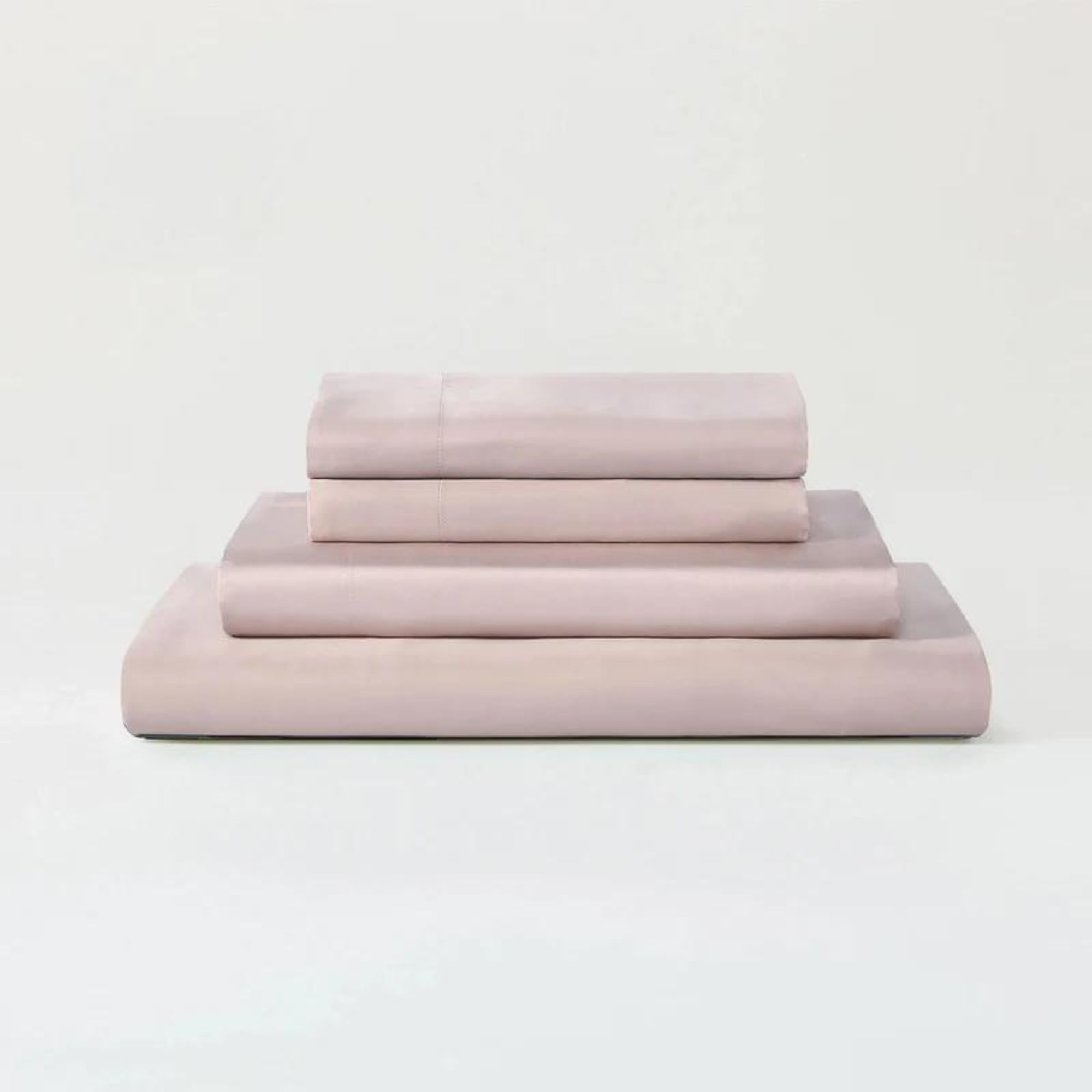
Sizes: Twin, Twin XL, Full, Queen, King, California King
Material: 100% TENCEL™ Lyocell
Colors: 7
OEKO-TEK certified: Yes
If you're prone to overheating at night, Tencel bed sheets are a must. Eco-friendly and made from all-natural materials, they have sleep properties that actively work to release and dissipate heat as you need it. Moisture-wicking, naturally antimicrobial, and breathable, these vegan sheets are a life-changer for hot sleepers.
For
- Eco-friendly
- Cold to the touch
- Ultra breathable
- Great price
- Soft and smooth
Against
- Prone to wrinkling
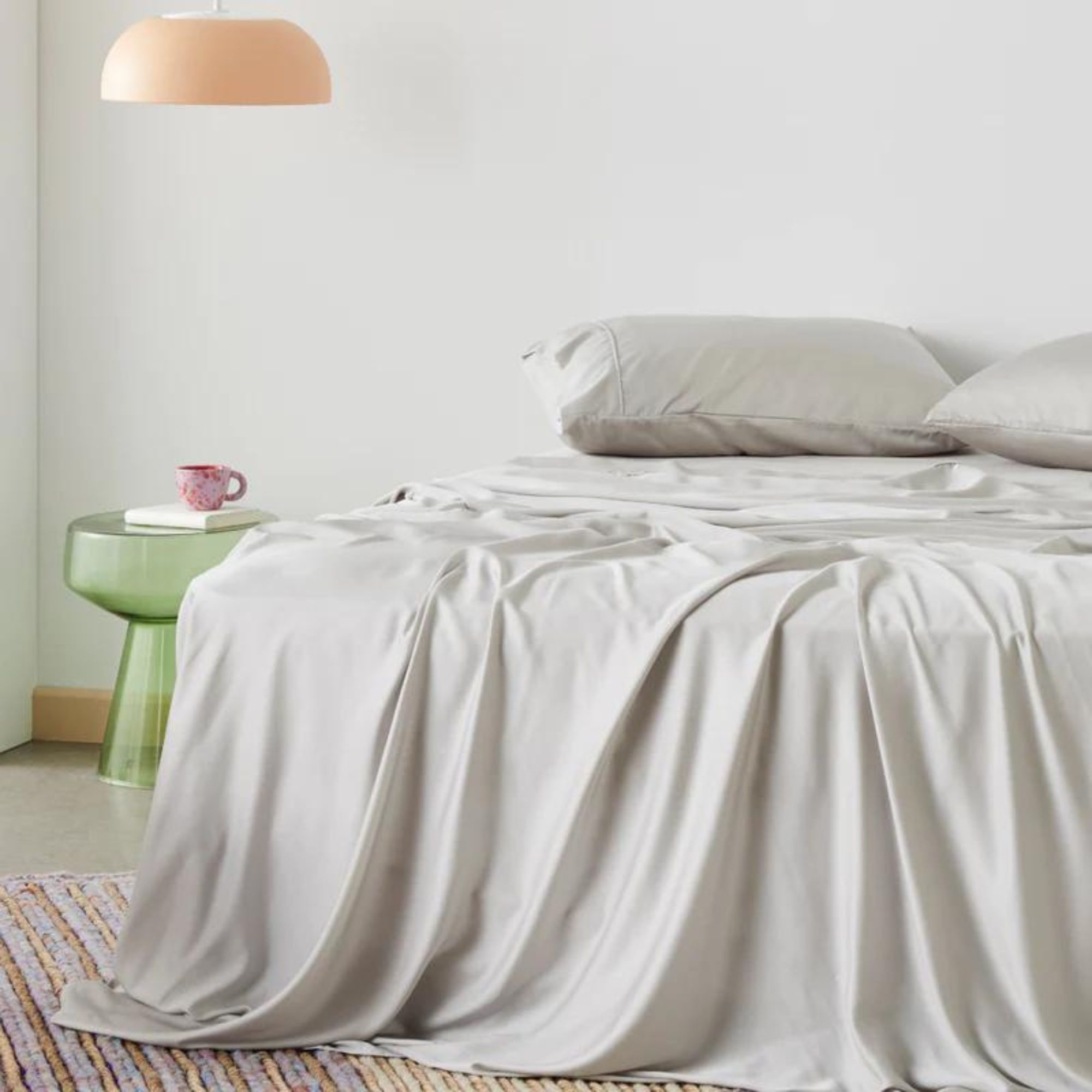
Sizes: Twin, Twin XL, Full, Queen, King, California King
Material: Bamboo
Colors: 12
OEKO-TEK certified: Yes
Sustainably made and naturally cooling, ettitude's sheet set made of CleanBamboo fabric is my favorite for summer. Naturally moisture-wicking, these sheets kept my night sweats under control through a long, hot summer. They wash well and never need to be ironed. I love how luxurious the silky finish looks draped over the bed.
For
- Sustainable
- Naturally breathable
- Stylish sateen finish
- Moisture-wicking
Against
- Silky look isn't for everyone
- More expensive
Bamboo vs Tencel – which is best?
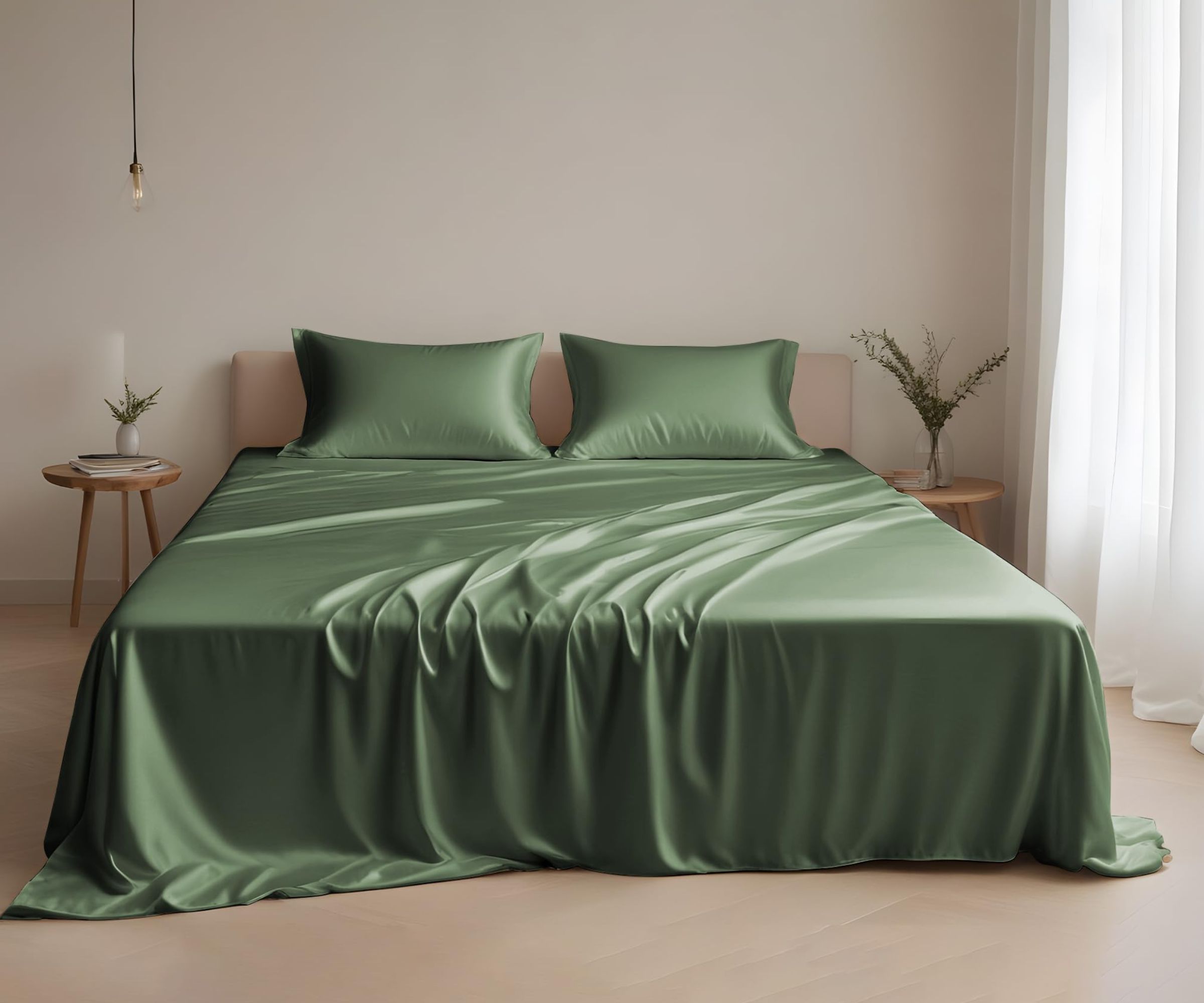
Bamboo and Tencel are more similar than they are different. Both materials are thermoregulating and moisture-wicking, with a soft, silky finish that feels smooth against your skin and looks instantly luxurious.
If you are a hot sleeper, Tencel eucalyptus is the clear winner. I have to reach for my Tencel set during hot weather and heatwaves as I find it to be much, much cooler than bamboo: actually cool to the touch, as opposed to just breathable. Many of the best cooling sheets are made from Tencel: cold and crisp with a more lightweight feel that keeps you comfortable throughout the night.
Bamboo bed sheets have a slightly brushed feel, and they're a good substitute when my Tencel sheets are in the wash. They're breathable but I've also felt cozy on colder nights.
FAQs
Is Tencel more expensive than bamboo?
Only marginally. It takes a little more time, money and energy to source the materials and fund the manufacture for Tencel than it does for bamboo. With that said, you can easily find budget-friendly bedding sets made from bamboo or Tencel when you shop with the best places to buy affordable bedding.
As a general rule, bamboo or Tencel bed sheets are more expensive than sheet sets made from cotton or polyester. Then again, I think it's worth investing in better bed sheets for your body and for the environment.
Why is Tencel so popular?
Tencel is gaining popularity among eco-conscious shoppers. Made from eucalyptus wood, Tencel has a smaller carbon footprint than cotton. Unlike other wood-derived fabrics, such as rayon or modal, the best Tencel is free from chemical dyes and processes. Sustainability to one side, Tencel is also soft to the touch, with a luxurious smooth finish, and eucalyptus makes a great thermoregulator.
Once you've bought the best bed sheets, be they bamboo or Tencel, it's important to take good care of them. It's worth learning how to wash bed sheets to keep yours in good condition.







